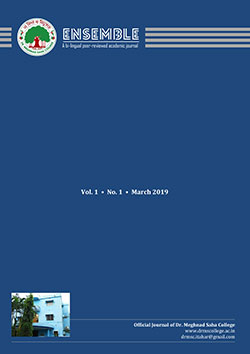Kinetic and Kinematic Analysis of Locomotion Speed of Higher Secondary Boys
Abstract:
The purpose was to analyze selected components of locomotion speed. Thirty school boys of age ranging from 17 to 19 year were selected as subject. Selected anthropometric and mechanical parameters were body weight, body height, leg length, maximum locomotion speed, leg power, stride length, stride frequency, body inclination, angle of leg placement in braking phase, push-off angle, horizontal projection of CG in braking phase, horizontal projection of CG in propulsion phase, horizontal velocity of CG in braking phase, horizontal velocity ofCG in propulsion phase, velocity of swing leg in braking phase, velocity of swing leg in propulsion phase, angular velocity of thigh in propulsion phase, contact phase, flight phase, braking phase, and propulsion phase. The maximum locomotion speed was determined by a field test. Running action was filmed by a digital video camera with 120 fps for the distance between 40 to 50 m of the 100 m race. The anthropometric parameters were measured using standard procedure. The selected mechanical parameters were analyzed by motion analysis software. Results showed that weight, height, leg length, stride length, stride frequency had higher positive correlation with maximum locomotion velocity, whereas, contact phase, flight phase and propulsion phase had higher negative correlation with maximum locomotion velocity.
Keywords: Maximum velocity, Stride length, Stride frequency, Anthropometric parameter, Mechanical parameter, Contact phase
https://doi.org/10.37948/ensemble-2021-0202-a034
Views: 1347



